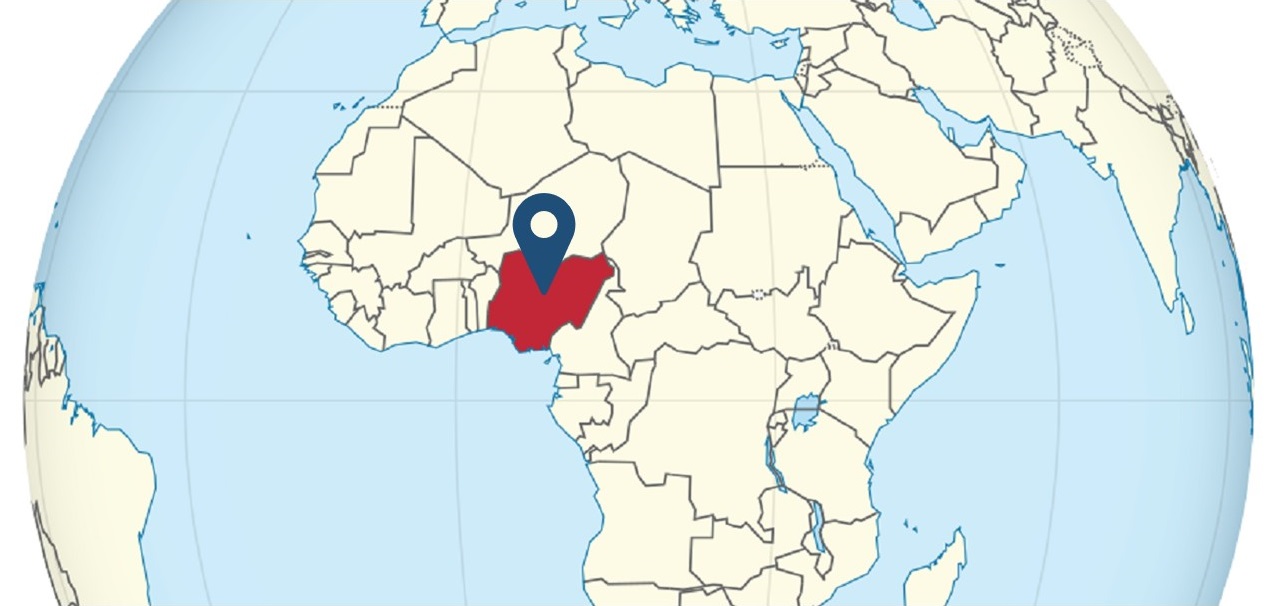
COVID-19 Pandemic: the emerging health rights issues in Nigeria and the rest of the world
by Fidelis Allen (RLC Campus Port Harcourt coordinator, Department of Political and Administrative Studies, University of Port Harcourt, Nigeria)
Introduction
The COVID-19 pandemic has exposed, among others, the vulnerability of economies, politics, policy, transportation, globalization, and energy to global health crises. It simply shows that a health crisis of this magnitude is capable of engendering diverse issues on scales that connect and affect people and transactions beyond borders. Aside from the toll on human life, call it ‘a deglobalizing impact if you like’. The risk of social tension, rising quickly from a mismanaged emergency, politically and ethnically coated policy responses, and corruption, looms large. The pandemic is gradually exposing the failures of existing and past political, social, economic and health institutions.
The years of neglect of the health sector in preference for those in Europe, North America and India seem an invitation of pain, even there is no guarantee that a strong health system can better manage a pandemic of this nature. At least, the cases of Italy, Spain, France, the United Kingdom, and the United States are proof that it takes a lot more to manage an unprecedented super olympic-style virus attack. As the virus seems to have belittle strong health systems, and succeeded in taming over- bloated centres of powers in many quarters, making men look more like men, and God more like God, in the seeming context of helplessness, a new spirit or zeal for a demand on leaders to be more responsive to the health of people from a rights perspective, is likely in the post-COVID-19 era.
Health issues are linked to all aspects of life. For example, reading this morning in a major daily newspaper, that residents of the United Kingdom are to be paid money for using electricity derived from wind and solar installations, scooped my organic system. Per capita cost of electricity consumption has turned graciously low by 13 percent. Even the cost of electricity from fossil fuels has become unbelievably low. This conceivably is the result of years of following an energy-mix plan that privileges renewable energy in that society. With the lockdown, many manufacturing outfits that previously consumed huge kilowatts of electricity are closed. Though families are in-doors and are likely using much electricity, it is nowhere close to the optimum.
By contrast, residents in Nigeria have had to enjoy the lockdown with rationed electricity and face an incomprehensible response to the threat posed by the virus. The fear and the public and individual prayers for a supernatural deterrence or prevention of the spread is real. The country’s confirmed cases remain far lower than the disastrous cases in Europe and North America. As of the time of writing, Nigeria had recorded 232 confirmed cases and 6.700 persons on account of contact with the confirmed cases. Demises have also remained low (a mere two), making the tragedy deceptively lighter for now. The real issue, which time will help us all gain a better sense of perspective is whether health rights will be pursued and realized.
Realizing Rights to Health
Realizing health rights in the days ahead, will go beyond asking political leaders or politicians to invest in the establishment of health institutions such as well-equipped hospitals, laboratories, diagnostic equipment, training, and productions. A recent request by the Nigeria Medical Association that the Federal Government create more testing centres with equipment to check the spread of the virus such a future that has be more planned. It will be about dealing comprehensively with the political, education, socio-economic and environmental conditions that undermine the physical and mental health of people. Apparently, these are the core of the issues emanating from the current global health emergency, showing that health issues as much political, economic, social, educational, environmental, and conflictive.
The federal government is currently distributing Twenty Thousand Naira (N20,000) – less than $60 – to the poor. But the media is already carrying stories of contention around the distribution. The issues relate to the issue of fairness in a country where the poor are found in all the states, local government areas or ethnic groups. It appears beneficiaries are for now mainly from the Northern parts of the country where President Muhammad Buhari hails from. The ethnic interpretation of this laudable response of the government on the part of the rest of the groups in the country signals the sense of disappointment citizens can have with a government that may be working hard to respond to an emergency. In a similar vein, because the poor often bear the burden of the rich in many societies of the developing world, curfews and lockdowns, ordered without a relief plan turns out negative on the poor who live in places they must daily go out to find what to eat or feed their families. The fear of spreading the virus, which in the first place is the motivation for the lockdown, is about public health. But, the lack of adequate concern for the survival of the poor through access to food contradicts the public health goal. Thus, such concern is needed for responding well to the public emergency created by the virus. It means also that public health cannot be treated in isolation of socio-economic issues.
Nigeria and other countries in the developing and developed world, have no tradition of conceptualizing health rights to guide policy, which can be pursued for realization. COVID-19 has the potential to change the narrative, by instigating policy reforms in the health, political, conflict management, security, economic, energy, environment, and education sectors. The elusive nature of health rights and the implications it has for those living at the margins of life in times of crisis, as well as the fact that health rights ought to be fully enforced and enjoyed, suggest a strong link between health, economic, political and other sectors of society. It also quickly suggests a need for world leaders to prepare for a new global order with the health of people as a primary focus. For example, the years of polluting the atmosphere with greenhouse gases and creating businesses out of it, the years of amassing dangerous weapons of war, the years of expanding military industrial complexes, years of control of the world economy by the most powerful nations, years of threatening the world with nuclear weapons, and the years of glut in the manufacturing of equipment and computers that cannot prevent the number of deaths that have occurred across the world in less than five months, must give way for what really matters in times of emergencies.
Nigerian political leaders are popular for patronizing health institutions in Europe, North America, and Asia. The current crisis has interfered with their usual medical trips overseas. Such trips are laden with expenses that if properly calculated in retrospect, could be as huge as the money needed to build several hospitals in rural and urban communities. Now, there is no such thing as travel to the countries battling to save themselves from the scourge of COVID-19 to seek medical attention. Those who failed to build the health sector, who may not even have been infected by COVID-19, but would want to travel for medical care for other ailments seem stranded.
It is instructive that many states have responded with efforts to stop the spread of the virus by restricting movements and creating awareness on social distancing as the main approach to curbing the spread. States have created isolation and treatment centres. Lagos state, that has the highest number of confirmed cases in the country is far ahead of others in this.
Realizing health rights must be the core issue in future engagement with politics and development processes, not only in Nigeria, but across the world. Citizens must begin to ask politicians seeking elective offices the question of whether they see health care as a privilege, a right or a responsibility. The same question, treated from an academic perspective in a beautiful book chapter written by Mary Robinson and Andrew Clapham in 2009, former President Barak Obama answered:
Well, I think it should be a right for every American. In a country as wealthy as ours, for us to have people who are going bankrupt because they can’t pay their medical bills—for my mother to die of cancer at the age of 53 and have to spend the last months of her life in the hospital room arguing with insurance companies because they’re saying that this may be a pre-existing condition and they don’t have to pay her treatment, there’s something fundamentally wrong about that. [1]
Countries of the North, as can be seen from the statement made by Obama concerning the United States, do not recognize health rights, let alone those in the South. The good news is that realizing the right to health is supported by international regimes. For example, the Universal Declaration of Human Rights, article 25 states thus:
everyone has the right to a standard of living adequate for the health and well-being of himself and of his family, including food, clothing, housing and medical care and necessary social services, and the right to security in the event of unemployment, sickness, disability, widowhood, old age or other lack of livelihood in circumstances beyond his control.
In a similar vein, the International Covenant on Economic, Social and Cultural Rights, article 12, recognizes “the right of everyone to the enjoyment of the highest attainable standard of physical and mental health [2]. As far back as 1946, the World Health Organization had articulated issues of right to health into its declarations, implying an international and national response to infectious diseases across the border as part of international law [3]. So, response to epidemics and pandemics have long been the responsibilities of the state, though prior to the 18th century the church, charities and the private sector played the significant role. In addressing this question, the indicators are many, and if we even look at the moral duties imposed on the state by international law, politicians have lot to do. They must be told of the indisputable truth of the role they must play in the area of realizing the health rights of citizens, such as creating the socio-economic and environmental conditions that are conducive to realizing the rights. In times of global health crises, they must exercise public control, provide palliatives and prevention of epidemics and pandemics from spreading.
Conclusion
The provisions in international law impose on political leaders at the national and sub-national fronts a moral duty to ensure relevant institutions are created with statutory responsibilities to ensure enforcement. They also suggest that the social and economic conditions conducive to the realization of these rights are not negotiable. As the COVID-19 pandemic unleashes the potential of global health crises to exacerbate poverty, strengthen inequality and disrupt economies, governance responses must be anchored of rights.
References
1 Robinson, Mary and Clapham, Andrew (2009) Introduction. In: Andrew Clapham and Marry Robinson (Eds.) Realizing The Right To Health, Switzerland: ruffer and rub, pp.16-18.
2 International Covenant on Economic, Social and Cultural Rights adopted by UN General Assembly Resolution 2200A (XXI) of 16 December 1966.
3 Riedel, Eibe (2009) The Human Right to Health: Conceptual Foundations. In: Andrew Clapham and Marry Robinson (Eds.) Realizing The Right To Health, Switzerland: ruffer and rub, pp. 21-39.
